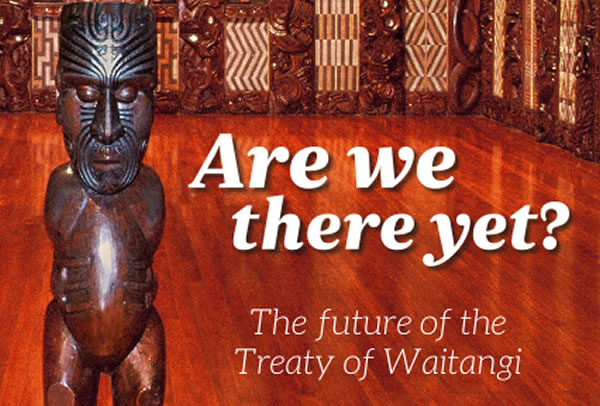What are we to make of the recent stoush between Race Relations Commissioner Dame Susan Devoy and Jamie Whyte, leader of the ACT party?
Unfortunately it illustrates everything that is wrong with the way New Zealand currently debates two very important issues – the over-representation of Maori among New Zealand’s disadvantaged and the political rights that are granted to Maori but no-one else. By political rights we mean opportunities to influence policies that affect everyone, not just Maori. Two obvious examples are the Maori electoral seats and the Maori statutory board that advises Auckland Council.
Time and again these two issues get blended together, one is considered a substitute for the other. But that is fatal. The predictable outcome is combatants arguing at cross purposes and no progress on either issue. The recent battle is a case in point.
It is not the case, as Whyte seemed to imply, that policies that address Maori disadvantage are examples of unique political rights for Maori. That view conveniently ignores the fact that active intervention into people’s lives – affirmative action – is often needed.
Critics can legitimately question whether affirmative action policies are effective at addressing disadvantage, or whether they are available to everyone in genuine need, but they cannot credibly reject them on the grounds they are deviations from political equality. They simply aren’t – or shouldn’t be, if properly designed – political in nature.
We’re not aware of any robust evaluations of New Zealand’s parallel entry policies to elite university courses, the affirmative action policy that bothered Whyte. So we’re not defending the policies as being effective or inclusive (is parallel entry available to Pasifika, refugees and the disabled, for example? It should be). In fact, we’d say New Zealand has to get serious about evaluating policies like this if it hopes to make any inroads into disadvantage.
Despite claims to the contrary, it is not the case, either, that unique political rights are necessary in order to address Maori disadvantage. Yet that seems to be Devoy’s position.
That’s a convenient default position – a substitute for thoroughly investigating the causes of disadvantage and being creative when looking for solutions. It is also an irresponsible position because it ignores the risks that can emerge when one group is given unique political rights. At the very least, these risks need to be acknowledged.
Whyte was entitled to raise the issue but, in our view, did a poor job of informing the public.
There is much that can be learned from international experience about what governing arrangements are best when a society, like ours, is made up of diverse ethnic groups, including an indigenous people. There is a lot of debate about it. However, where there is anything approaching consensus it is this: giving unique political rights to a group or groups based on rigid descent-based criteria is not recommended. You risk creating artificial social divisions and exacerbating any divisions which already exist. But this is what New Zealand has done, and is increasingly doing.
Not only do you infringe on the democratic rights of individuals but when you create unique political power for some groups, so the argument goes, the leaders of those groups arguably have an incentive to accentuate the difference between their group and the rest of society. Any awareness and acknowledgement of common ground between the group and the wider society is rejected because that may lead to the questioning, and ultimately the loss, of the unique rights held by the group.
Political arrangements, then, that create unique group rights can trigger a dynamic parting of the ways within society that is artificial but nonetheless powerful for that. We should be trying to address disadvantage and all be ashamed of the ethnic bias in that affliction, as well as meeting Maori aspirations to have more say over their lives while avoiding the pitfalls of deviating too far from political equality.
If we’re going to rise to these challenges we need to be open to what the evidence says, creative in our search for solutions and work together. The recent debate is a poor substitute for that.
Gareth Morgan and Susan Guthrie of the Morgan Foundation have been researching the future of the Treaty of Waitangi and intend to publish their work early in 2015.
You can signup to get more information the book here

